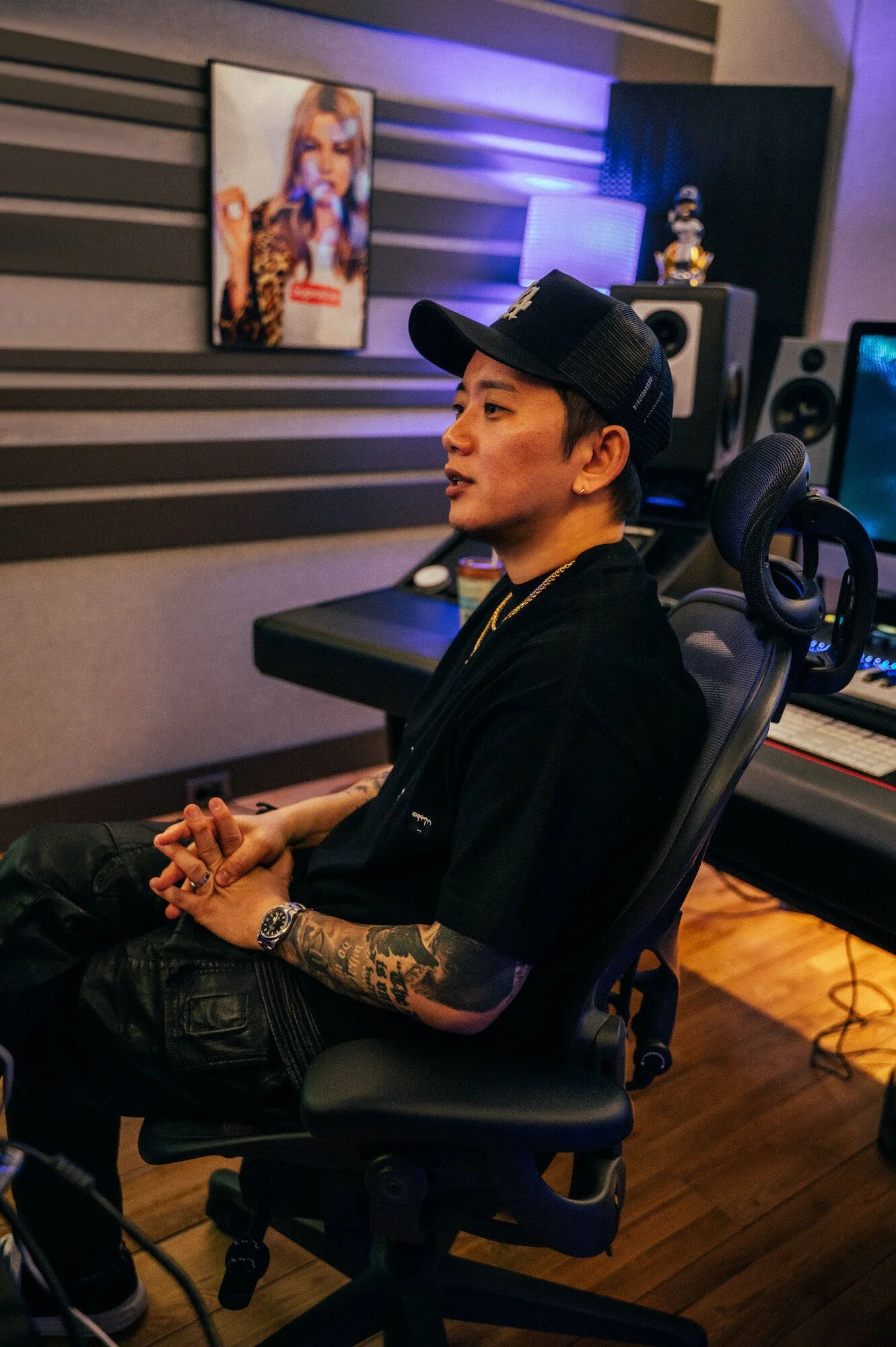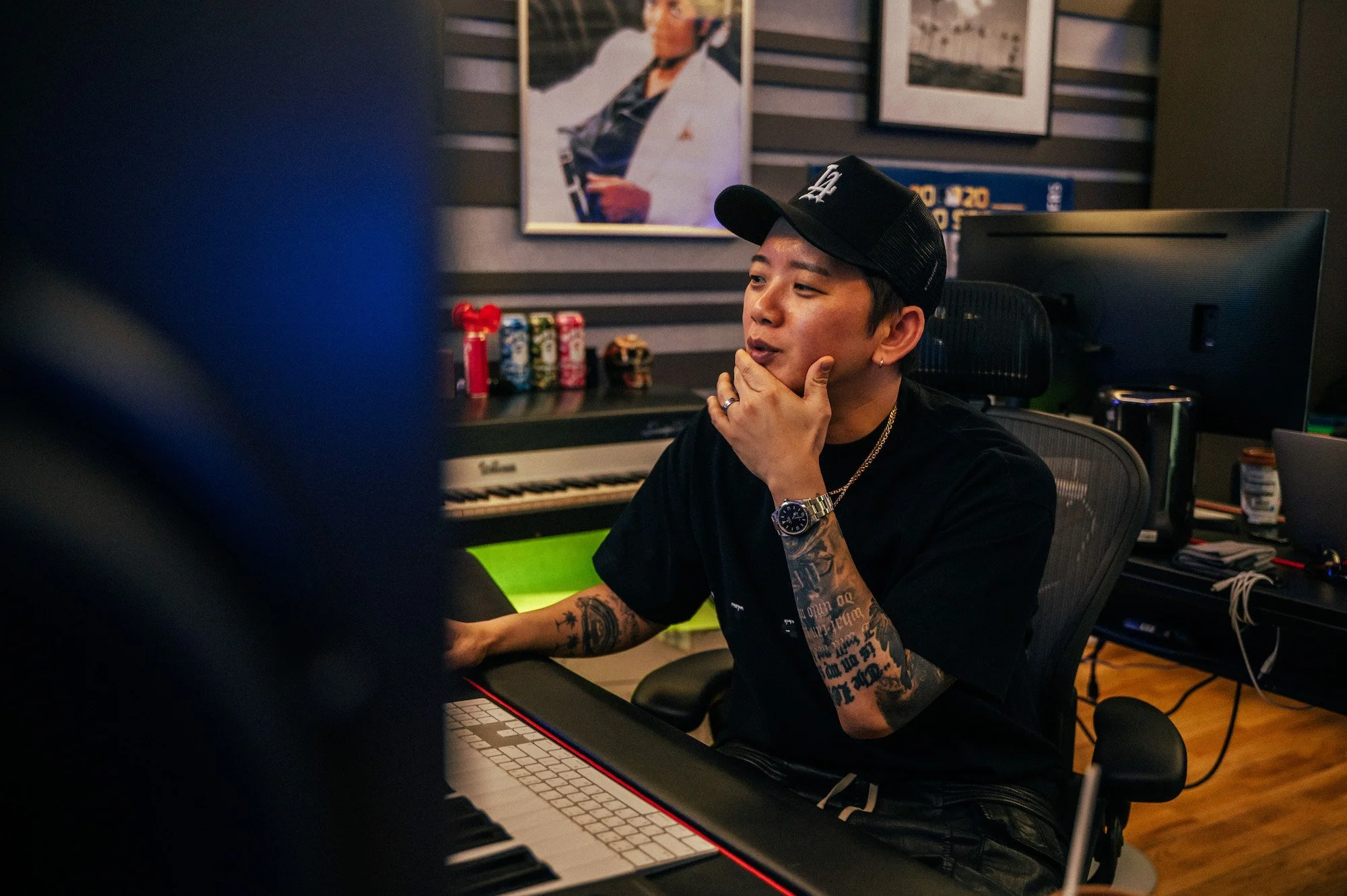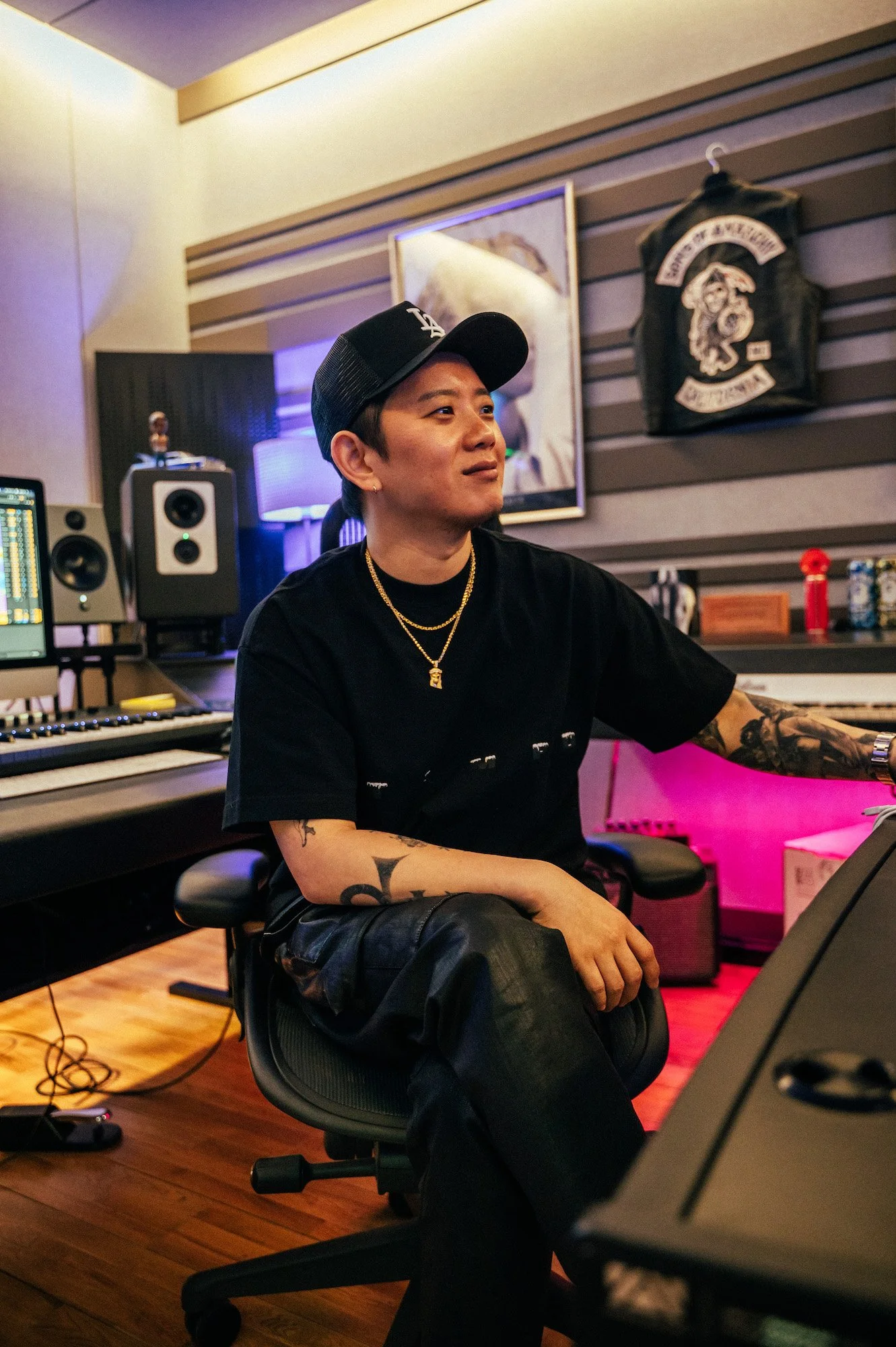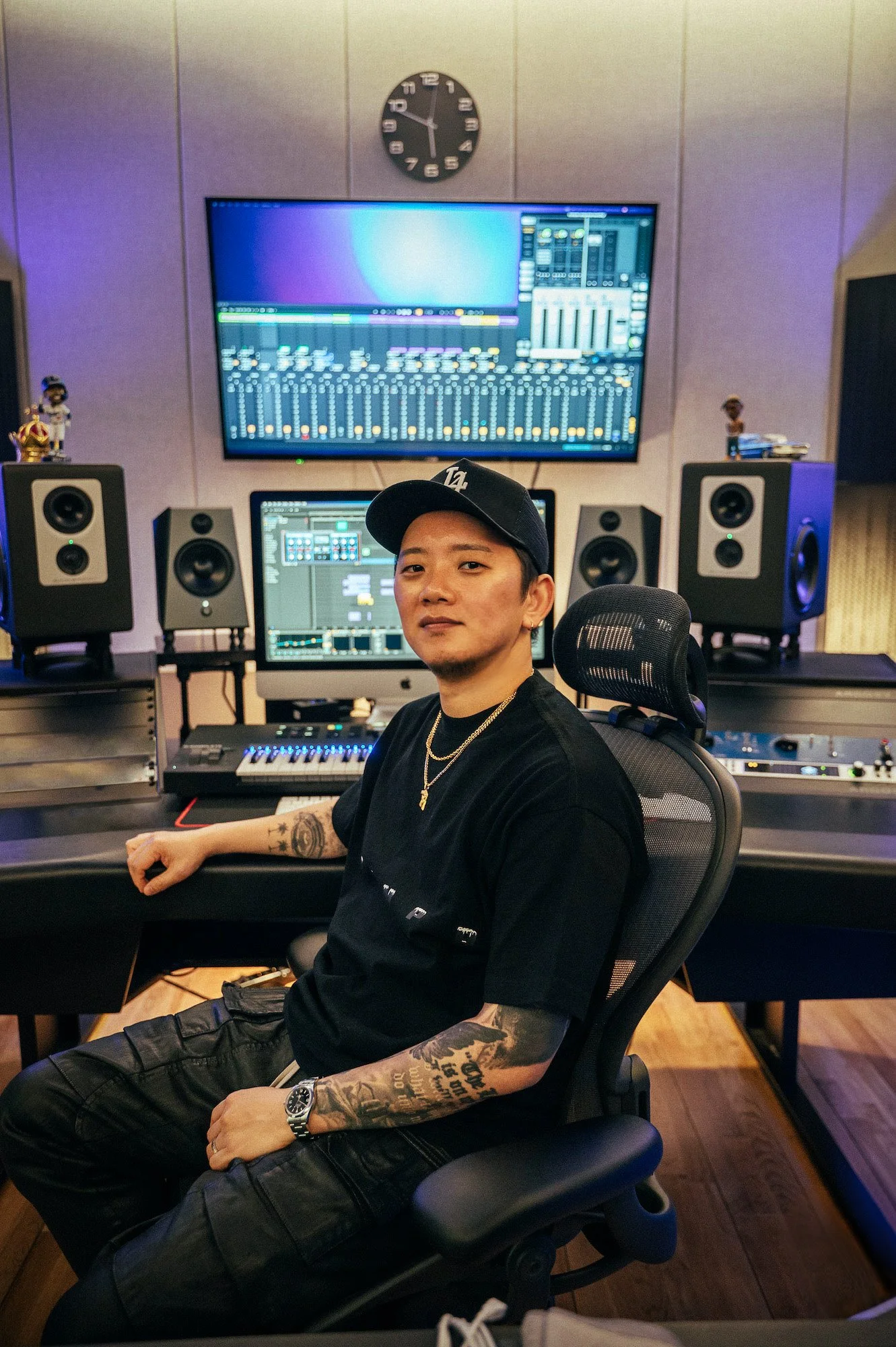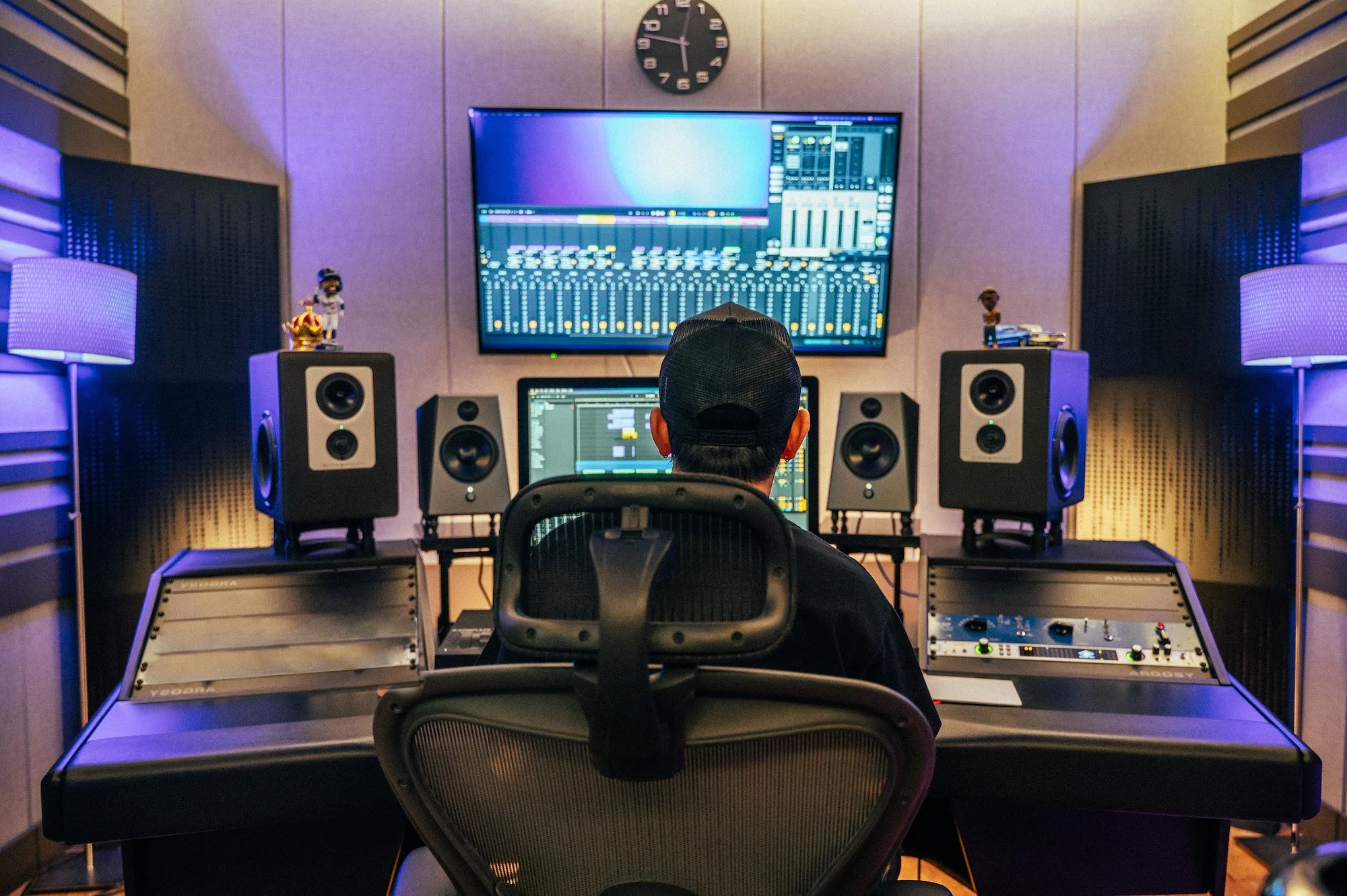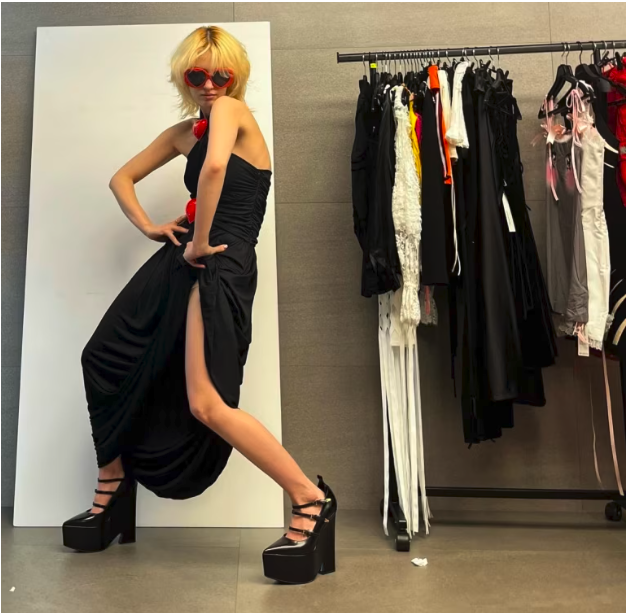AiRPLAY interview with Gear Lounge [English]
Gear Lounge is an audio and stereo equipment provider. Parts relating to his work in YG are abstracted. Go to Gear Lounge for full article.
GL: Hello. Nice to meet you through GL Interview. Please give a brief greeting and introduction.
AiRPLAY: Hello. My name is AiRPLAY and I am working at YG Entertainment as a producer.
“While it's difficult to see broad overall public recognition, a strong and devoted fanbase has developed for this team. Paradoxically, I believe that what will return as the pandemic diminishes are the revival of concerts and physical album releases.”
GL: How are you doing these days?
AiRPLAY: I usually focused on Minho and Seungyoon's works, but since my two friends are enlisted in the military, I've been spending most of my time recently working on songs for YG's youngest group, TREASURE, and BABYMONSTER, who are about to debut. Both teams already have solid fanbases, and especially in the case of TREASURE, their fanbase is growing to the point where they are doing a dome tour in Japan. Although I am not part of the team with the main producer leading everything, if there are songs that would suit each member, I have been preparing and working with them.
GL: Over the past few years, there have been many life changes due to the pandemic, and I think various factors have played a role in the flow of the scene. From a production perspective, what has changed compared to before COVID-19?
AiRPLAY: It may seem that the we are the only ones that have experienced such changes, but post-pandemic, rather than focusing solely on music chart rankings, we are now concentrating on 'projects' that allow us to communicate with fans. So naturally, there has been a change in the artists’ fandoms. While it's difficult to see broad overall public recognition, a strong and devoted fanbase has developed for this team. I believe that what will return as the pandemic diminishes are the revival of concerts and physical album releases.
GL: What got you interested in music?
AiRPLAY: When I was young, I loved the NBA. At the time, I was able to watch NBA highlights on AFKN, which was the broadcasting station from the U.S. military in Korea. When I was in middle school, I first encountered the hip-hop genre on an entertainment program that was aired after the NBA highlights, and I was completely fascinated by it. (Laughs) The first musician I met at that time was LL Cool J. My producer name, ‘AiRPLAY’, was inspired by LL Cool J’s song “No Airplay.”
From then on, I always kept Bae Cheolsoo's Music Camp and GMV Magazine nearby and gathered all the information I could. At some point, I became more interested in producers rather than singers performing, and that's what brought me here.
GL: In the past, due to the lack of information, there seemed to be a lot of content centered around musicians whose faces were directly exposed in the media. Is there a reason why you became interested in the role of supporting musicians behind the scenes, especially producers?
AiRPLAY: When I bought an album, I looked at the album jacket and checked everyone's names written on the jacket. At that time, I didn't want to leave out anything from that album. For example, when I buy an album by LL Cool J or a musician I like, I say, ‘There’s a producer named Marley Marl?’ and I look up all of Marley Marl’s works, ‘Track Masters are credited!’ and looked up all their works. If there was a musician I liked, I would look for and listen to all of that producer's tracks, and as I naturally fell in love with hiphop, from LL Cool J to Nas, I think I naturally dreamed of becoming a producer. When I think about it now, it was pure passion, but at the time, my father scolded me a lot for doing anything other than studying. (laugh)
GL: I’m curious about your early days as a producer, when you started producing in earnest.
AiRPLAY: Back in high school, there was an online communication service called 'Unitel.' There was a black music club on there, and by participating in those gatherings, I naturally began to learn about the concept of producing and gained some information. That was the starting point for me. Later on, I aimed to pursue a career related to producing, but due to my family's opposition, I ended up majoring in classical composition. After serving in the military, I once considered going to the United States, the birthplace of hip-hop and R&B, to properly start my music career. However, I decided to stay in Korea because I judged that it would be difficult to balance work and music while doing part-time jobs in the United States. Then, I started music in earnest when I set up a small studio in Sinsa-dong basement with producer Kang Wookjin, who is currently with YG. (Dungeon’s note: Sinsadong is high end Korean real estate.)
GL: You debuted as a producer for YG Entertainment through Se7en's 'Make Good Love'. As a producer, are there any changes in your work style or environment before and after the establishment of your agency?
AiRPLAY: Back then, it was 'making music just by staring at the wall', the biggest difference is working by communicating with the artists and understanding the company's needs. When I first joined the company, there were many talented composers. I desperately felt my shortcomings and tried to learn a lot. There wasn't a single thing that was done half-heartedly in every aspect. I think I redefined my concept of producing by investing a lot of time in details.
“Although we have an image of being a bit closed off, we are actively interacting with external producers and our producers at YG are also working hard to try something new.”
GL: For those who like hip-hop and R&B music as well as K-Pop, YG must be an attractive agency and clan. What is YG's unique style?
AiRPLAY: I can't say for sure like 'Something’s different!' (Laughs) There are music styles from other places that we think is good that we can't put out, and conversely, there are songs that we feel are good but those other places can't put out. Perhaps we have a somewhat intuitive style? Although we are all in the same K-Pop category and are all good music, you can feel that their needs are slightly different. Although we have an image of being a bit closed off, we are actively interacting with external producers and our producers at YG are also working hard to try something new.
GL: AiRPLAY writes both lyrics and composition. I'm curious as to why you prefer the style of writing the lyrics first and getting inspiration, or sketching out the basic music and then writing down the ideas and lyrics.
AiRPLAY: I think my priority is image the emotion I want to convey. Rather than writing lyrics in advance, I write down words that evoke images and bring them out when working on lyrics to get ideas. I think it's best when the lyrics and melody come together at the same time, but more often than not, I create a musical atmosphere first and then add the lyrics.
GL: Is there a message or feeling you want to convey that is most important during the songwriting process?
AiRPLAY: Rather than a message, I think it’s definitely the feeling that I want. When I write lyrics, I prefer to use everyday language and tone we use in our daily conversations, and I like to create a consensus. YG Entertainment has a lot of singer-songwriters, so I often share opinions with musicians about lyrics. In these cases, I often suggest ideas about words, expressions, and feelings rather than being fully involved in writing lyrics.
GL: You produce a variety of styles of music, from hip-hop and R&B to chill trap-based pop and blues. How do you usually get inspiration?
AiRPLAY: I usually try to find inspiration in my studio, but ideas always come to me in unexpected places. When you let down your guard. (Laughs) For example, the parking lot just before reaching home... I think many musicians will empathise. (Laughs) I'm definitely the type of person who relaxes at home, so I just record things with instruments on my phone or write down notes.
GL: Surprisingly, you have presented a lot of music composed of acoustic compositions or rock sessions. Do you have any tips, unique to AiRPLAY, for capturing the distinctive feel of each genre?
AiRPLAY: I try to set a clear standard for each genre and set a tone, but I think the point is to bring out the nuances of the instruments well. Mainly from my younger days, I often recall the artists I passionately listened to at that time. I start the sketch by asking, ‘What would it be like if those people played this song?’
GL: Have you ever used your own music in a song?
AiRPLAY: I often play the piano myself, and I can also play the trumpet, but I haven't used it as a source yet. Although I don't actually play all the instruments myself, I served in a military band, so I have a good understanding of acoustic instruments and band sounds. I learned a lot during my time in the military band.
As for guitars, I'm really good at making them with MIDI. (Laughs) People around me are really surprised, to the point where they say, ‘You mean this was done digitally?’ As a sidenote, I really wanted to learn guitar when I was young, but my mom taught me how to play piano. Because I couldn't do what I wanted to do, I kept thinking about how to express myself on the guitar well with MIDI, and my skills naturally improved. (Laughs) There is a guitarist who has been working with me for a long time and works well with me, so I only write the guide, but there are also cases where MIDI-complete guitar sources are used in the album.
“I say this often to people around me, the producers I respect the most are PEEJAY and CHOICE37. “
GL: AiRPLAY, who are some artists you admire, want to emulate, or inspire you?
AiRPLAY: I say this often to people around me, the producers I respect the most are PEEJAY and CHOICE37. Of course, there are so many great musicians, but they are the producers whom I feel I have the most to learn musically, and whom I feel I have a lot to emulate in terms of hyungs’ attitude and mindset in approaching music. From the time I was a 'newbie' producer, they guided me a lot both personally and musically, and I felt that 'there's something different about these people.' I can't visit them often because I'm busy, but I always have respect for them.
GL: I’m curious how you recharge when you need a refresher in your music work.
AiRPLAY: When I have trouble concentrating, I close the DAW (Digital Audio Workstation) and do other things. For a while. You can think of it as just hanging out in the studio, but then there comes a time when you want to work again. I'm not the type to forcefully hold on to a track, so if I feel stuck, I'm the type to fold right away. In fact, I think this is an effect way of working. (Dungeon’s note: not to yg fans.)
GL: You have continued to work with many famous artists, including Winner, Taeyang, Lee Hi, and Se7en. Is there a song or artist that stands out to you the most?
AiRPLAY: All the artists I worked with were great and I have many good memories with them, but if I had to choose one, I think it would be Winner's <EVERYDAY>. I think it's even more so because I worked on this album with Winner members, supporting each other. Also, I became widely known through this album. I worked on about half of the tracks on the album, so I put a lot of energy into it, and I heard a lot of people around me say this was AiRPLAY's first album. (laugh)
GL: As you are a producer who has produced many hit songs, do you have any tips of your own for understanding the public’s consensus?
AiRPLAY: I don't know. This part still seems to be a difficult topic for me. I think songs that are simple, intuitive, and don't require much thought from the listener's perspective mostly get a good response. Of course, I think it's more difficult from a producing standpoint.
Honestly, me included, I think there is no musician who perfectly understands the public’s feelings. (Laughs) However, I always put a lot of thought and effort into the sound in the hope that the emotions and feelings I want to express in the song will be felt the same by the listeners. For example, even a simple piano melody is created with great care. Later on, I often hear people say things like, ‘I really like the piano part in this song,’ and I feel proud when that happens. When the 'device' I put in as a producer is applied and listeners recognize it, I feel connected and have interacted with them.
“It has become common to find group producing credits through Song Camp. It seems like an interesting situation where K-Pop content is being exported overseas, but the system is doing the opposite. “
GL: Recently, various sample packs have been released and various platforms have become available, making it easier to dig into sources, but the categories have also become more complex. Does AiRPLAY have your own way of using sources harmoniously?
AiRPLAY: I don't differentiate between genres when using samples. Although my library is divided into genres such as hip-hop and EDM, and there are kits for each style within it. Instead of using all the kits, I spend a lot of time combining samples and 'finding the source' until I create the sound I want. do. Even when using the sample platform, we set and find filter options randomly. It's good to select a source and create a sound through equalization or effects, but I think it's better to have a perfect foundation because it becomes difficult to predict how the sound will change later.
GL: Recently, K-Pop has become very popular around the world, and AiRPLAY, you are also in an important position in this cultural trend. What are the differences between past and present, and between domestic and overseas productions?
AiRPLAY: Due to the large influx of foreign composers into K-Pop, more diverse styles and feelings have emerged than before, and it has become common to find group producing credits through Song Camp. It seems like an interesting situation where K-Pop content is being exported overseas, but the system is doing the opposite.
Actually, I don’t think there is a big difference between working methods overseas and domestically. In general, collaborations with overseas artists are often conducted through song camps or teams. Since the goal is to produce a large number of results in a short period of time, the characteristic seems to be to build up progress and stories along intuitive lines to produce results.
GL: From a producer's perspective, what do you consider important when recording?
AiRPLAY: The recording team receives the recordings separately from the company's studio, so it’s more like I'm participating alongside them rather than receiving the source material directly. Usually the most important part we consider is the vocal nuance. The tune and beat can be corrected later, but nuance is not something we can create with any software.
GL: As technology continues to develop, the boundary between analog and digital is becoming increasingly blurred, and opinions on this are often divided even among musicians. I am curious about AiRPLAY’s thoughts on analog workflow and digital workflow.
AiRPLAY: In my case, almost all work except acoustic sessions is done with virtual instruments. I like the sound of analog synthesizers, but the K-Pop scene often requires quick modifications upon requests from artists or clients. Not only for track making, but especially when mixing overseas and modifying domestically, you have no choice but to prefer a 100% ITB (In The Box) mix because it is easy to recall. Of course, I know that it will get better if I use an outboard and go through a summing mixer, but from a practical standpoint, should I say that I am choosing a digital workflow? My personal opinion is that what is important is the result and that it is evaluated by the judgment of the public or critics, and it does not seem to be a matter of whether the standard is analog or digital. (Dungeon’s note : ITB = "in the box" = mixing and summing digitally in the computer. OTB = "out the box" = mixing and summing analog.)
GL: During the composing process, you sometimes do some mixing yourself to further refine the sound. How does AiRPLAY check the overall balance of the music?
AiRPLAY: We are working with the concept of creating a track and mixing the demo at the same time. I think that way, when adding sources, you can create the sound with the mix in mind. Once your track is complete, balance it with simple equalization or volume level adjustments. After the mix is completely completed, most of the mix is a recallable system, so we are actively involved in modifications, but in the case of mastering, we are not directly involved in mastering because it is completed in the United States.
GL: Recently, immersive audio such as Dolby Atmos® has been commercialized on platforms with a large global user base, such as Apple Music. I'm curious about AiRPLAY's opinion on immersive audio.
AiRPLAY: Winner's <HOLIDAY-EP> album, which I worked on, was also released as an immersive audio version, and it is clear that listeners have had more fun listening to it in a variety of ways. However, from the perspective of most creators, there are times when they feel resistance because they can see it as creating a 'sound effect' that they did not intend. It seems that the challenge remains to close that gap through sufficient exchange of opinions between creators and immersive audio engineers. Personally, I think it would be a good idea to try something new with instrumental music. In the case of a track with vocals, the mix will naturally focus on the vocals, but if it is a track without vocals, I think you can freely create more interesting results.
GL: What projects do you have lined up for the future?
AiRPLAY: As I mentioned earlier, we plan to continuously prepare new artists and projects for YG. I'm also trying to encourage juniors who work hard in music. I have been studying music on my own, and since I debuted late, I have a certain desire to help young people grow and succeed with less trial and error. I am collaborating with many students and juniors, and I hope that these friends will soon become known to the world.
GL: As producer AiRPLAY, is there anything new you would like to try?
AiRPLAY: I would like to direct not only music, but also visual concepts and music videos, but it is just a wish for the future. If I have time, one of my small goals is to prepare in my spare time and release my album under my name as a producer.
GL: Thank you for participating in the interview. Please say a word to the fans who will read this Gear Lounge interview and aspiring producers like AiRPLAY.
AiRPLAY: First of all, thank you for inviting me to the GL Interview. I feel like I'm just rambling because I don't have much to say. (Laughs) Since I was young, I listened to more b-side songs rather than single cuts or title songs, which were the focus of attention on albums. I think it was because those songs somehow touched my heart more. So, even after I became a composer, I am very grateful and grateful to the people who find my songs, listen to them, and connect with my music.
And to aspiring producers, don’t spare any investment in your music. I think there is nothing better than music that shows your path fully. Whether it's time or equipment, please make the best effort and investment you can. I hope you continue to challenge yourself until the end with a learning attitude.
![AiRPLAY interview with Gear Lounge [English]](https://images.squarespace-cdn.com/content/v1/635f41e8bc4bed0078be5b5c/ea992573-bc64-43eb-9d34-1ca4c33e5c1f/airplay+1.jpeg)
